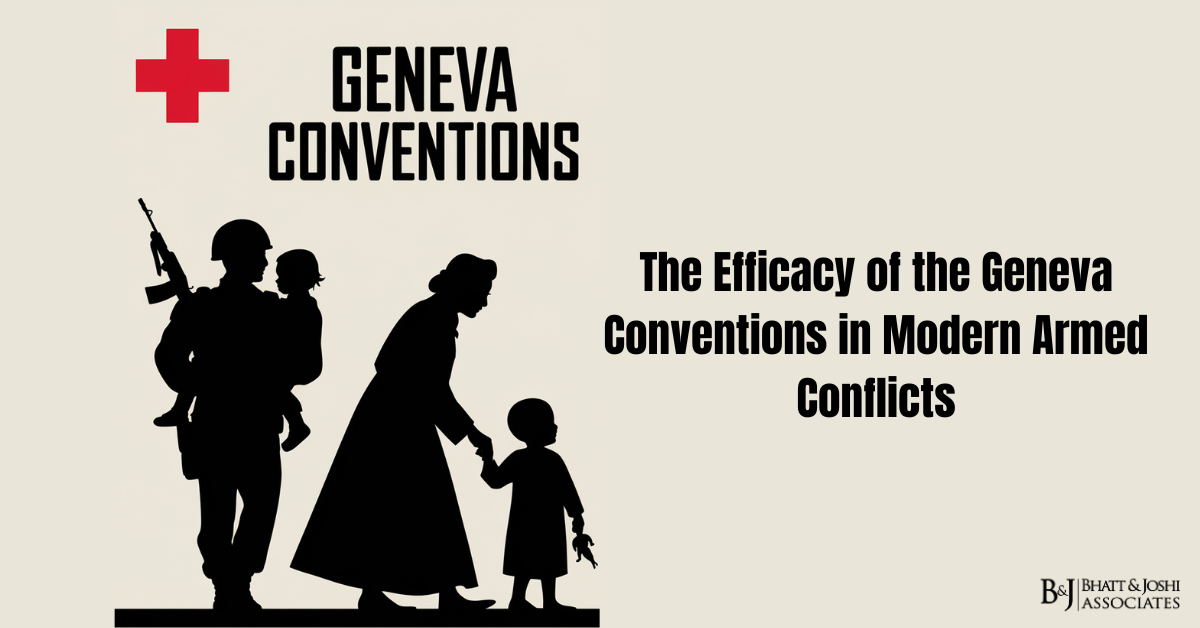Introduction
The Geneva Conventions, adopted in 1949, constitute the core of international humanitarian law (IHL), setting standards for the humane treatment of individuals during armed conflicts. These conventions, along with their Additional Protocols, aim to protect those who are not participating in hostilities, such as civilians, medical personnel, and prisoners of war. However, the nature of warfare has evolved significantly since the mid-20th century, raising questions about the relevance and efficacy of the Geneva Conventions in modern armed conflicts. This article examines the key principles of the Geneva Conventions, their application in modern warfare, and the challenges of ensuring compliance.
Overview of the Geneva Conventions
The Geneva Conventions consist of four treaties that provide a comprehensive legal framework for the protection of individuals during war:
- First Convention: Protects wounded and sick soldiers on land during armed conflict.
- Second Convention: Extends protection to wounded, sick, and shipwrecked members of armed forces at sea.
- Third Convention: Addresses the treatment of prisoners of war, ensuring their humane treatment and access to basic rights.
- Fourth Convention: Focuses on the protection of civilians in areas of armed conflict and occupied territories.
The Additional Protocols of 1977 and 2005 further expand the conventions to address non-international armed conflicts and the use of modern technology in warfare.
Key Principles of the Geneva Conventions
The Geneva Conventions are guided by fundamental principles of IHL, including:
- Distinction: Parties to a conflict must distinguish between combatants and non-combatants, targeting only legitimate military objectives.
- Proportionality: Attacks must not cause excessive harm to civilians relative to the anticipated military advantage.
- Necessity: Military actions must be necessary to achieve a legitimate objective.
- Humanity: Individuals not participating in hostilities must be treated humanely, without violence, torture, or degrading treatment.
Application in Modern Armed Conflicts
Modern conflicts often deviate from the traditional state-centric warfare envisioned by the Geneva Conventions. Key developments include:
- Non-International Armed Conflicts: The rise of civil wars, insurgencies, and terrorism has shifted the focus from interstate conflicts to non-international armed conflicts. These conflicts often involve non-state actors who may not adhere to IHL.
- Asymmetric Warfare: The use of guerrilla tactics, improvised explosive devices (IEDs), and cyber warfare complicates the application of principles such as distinction and proportionality.
- Technological Advancements: The use of drones, autonomous weapons, and cyber operations presents new challenges for IHL, as these technologies may blur the lines between combatants and civilians.
- Urban Warfare: Conflicts increasingly take place in densely populated areas, exacerbating civilian casualties and complicating compliance with IHL.
Challenges in Ensuring Compliance
Despite the comprehensive framework of the Geneva Conventions, ensuring compliance remains a significant challenge:
- Non-State Actors: Many modern conflicts involve non-state armed groups that may lack the capacity or willingness to comply with IHL.
- Accountability: Enforcing accountability for violations is difficult, particularly in conflicts involving powerful states or actors operating in areas with weak governance.
- Ambiguity: The conventions’ provisions may be subject to differing interpretations, particularly in complex and evolving conflict scenarios.
- Impunity: Violations of the Geneva Conventions, such as targeting civilians or using prohibited weapons, often go unpunished due to political and practical constraints.
Recent Developments and Case Studies
- Conflict in Syria: The Syrian civil war has been marked by widespread violations of the Geneva Conventions, including attacks on civilians, hospitals, and humanitarian workers. Efforts to ensure accountability, such as the UN’s International, Impartial and Independent Mechanism (IIIM), highlight the challenges of enforcing IHL.
- Ukraine Conflict: The ongoing conflict between Russia and Ukraine has raised significant concerns about violations of IHL, including attacks on civilian infrastructure and alleged war crimes. International investigations and prosecutions aim to address these violations.
- Use of Drones: The increasing use of armed drones in conflicts such as those in Yemen and Afghanistan raises questions about compliance with IHL principles, particularly distinction and proportionality.
Adapting the Geneva Conventions to Modern Armed Conflicts
To enhance the relevance and efficacy of the Geneva Conventions in modern armed conflicts, the international community must:
- Promote Awareness: Strengthening education and training on IHL for both state and non-state actors.
- Enhance Accountability: Establishing stronger mechanisms for investigating and prosecuting violations, including universal jurisdiction and international tribunals.
- Adapt to New Realities: Updating legal frameworks to address emerging challenges, such as cyber warfare and autonomous weapons.
- Strengthen Humanitarian Access: Ensuring the protection of humanitarian workers and the delivery of aid in conflict zones.
Conclusion
The Geneva Conventions remain a cornerstone of international humanitarian law, providing critical protections for individuals in armed conflicts. However, the evolving nature of warfare necessitates continued efforts to ensure their effective application and enforcement. By addressing contemporary challenges and fostering greater adherence to IHL, the international community can uphold the principles of humanity and mitigate the devastating impacts of war.











